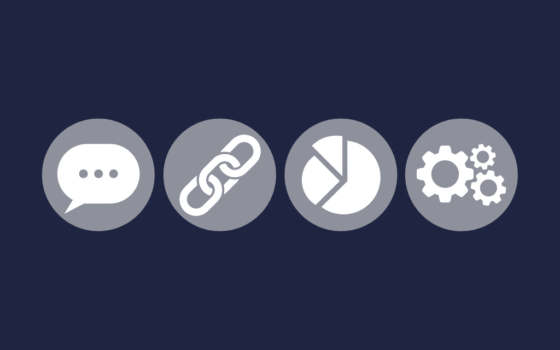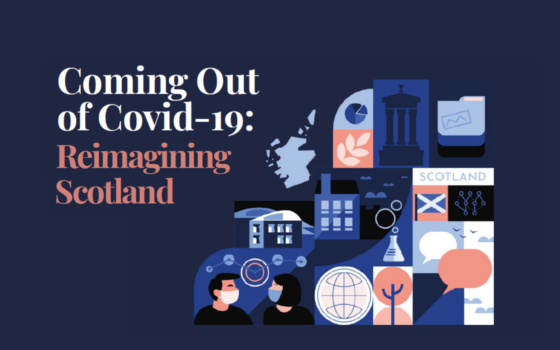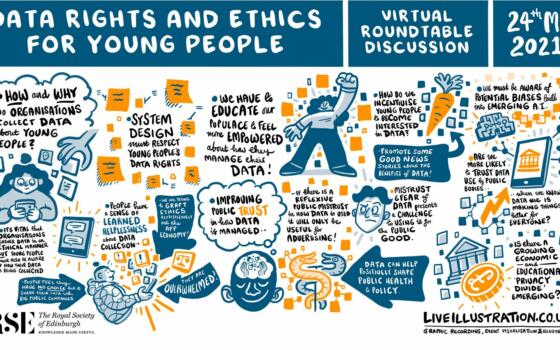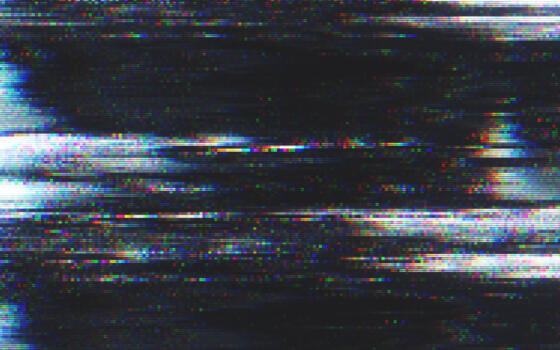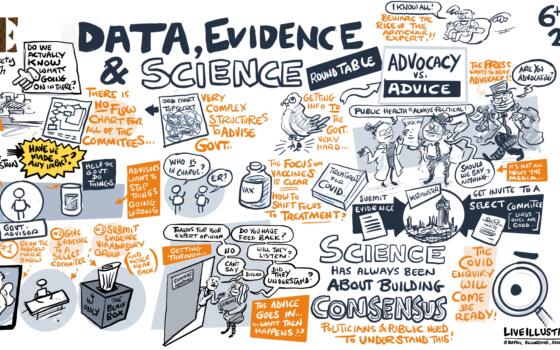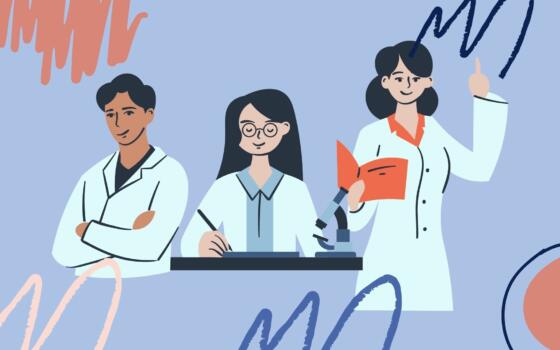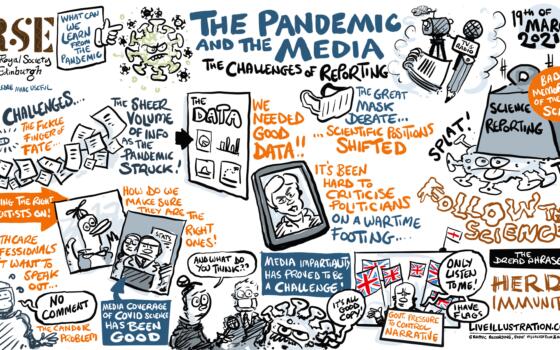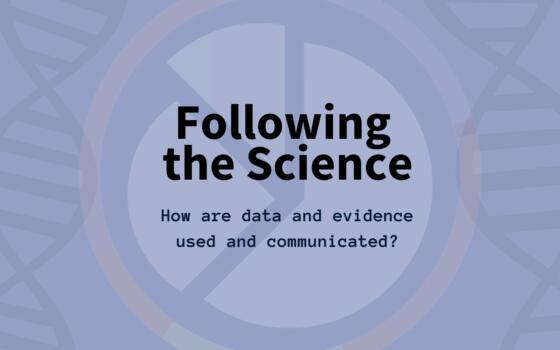The Data, Evidence and Science work stream held a roundtable with young people to listen to their lived expierience of social media, ‘fake news’ and gaming during the Covid-19 lock down, and further consider lessons that can be learned in the wake of the pandemic. Excerpts from this conversation have been pulled together into a podcast episode hosted by Professor Chris van der Kuyl FRSE, Chairman and Co-founder of 4J Studios (a Scottish video game development studio). The episode brings together RSE experts and young people from a variety of youth organisations and schools across Scotland to discuss topics such as:
- Mental health in young people during lockdown
- Potential positives and pitfalls of digital connectivity
- The accuracy of data and ‘fake news’ in social media spaces
- Virtual togetherness as a safe alternative for young people to connect
You can listen to this episode here, or by pressing play below.
[00:00:51] Chris van der Kuyl: I’m going to facilitate a bit today. I we’ve got three fantastic experts around the table with, you know, Whole host of knowledge in different areas, principal, it is that they’re well-known for .
But in addition to that, they can pretty much answer questions on anything. if you don’t know my background, then I amongst all the things that are tech entrepreneur, but a lot of background in the video games industry. So, so I I’m happy to kind of get stuck into the depth of the digital debate at any point.
But I’ll try and keep an eye out for anybody trying to grab attention. Please let’s have a bit of an open discussion. I’ve got some questions here that were submitted a bit in advance will probably come to you in a second to ask you, maybe you don’t need to ask all the questions, but just maybe pick one of your questions and come in and then we’ll see where the conversation goes.
But before we do that, I’d love to ask my fellow panelists to say with a little bit about themselves. an introduce you. So I’ll come to Niamh first, Niamh Nic Daied.
[00:01:49] Niamh Nic Daeid: Hi everybody. I’m Niamh Nic Daied, professor of forensic science at the university of Dundee. I’m also a fellow of the Royal society of Edinburgh.
And I lead a large research group that’s looking at primarily how we get science to function appropriately for our courts and for our legal systems. Key to that is understanding lots of things about data and how data influences evidence, and then how we can communicate that to members of the public such as yourselves.
[00:02:16] Chris van der Kuyl: Okay. Thanks Niamh. Peter
[00:02:21] Peter McColl: Peter McColl. I’m a member of the young academy of Scotland, which is the early and mid career section of the Royal Society of Edinburgh. I’ve got a real interest in data, digital, but also in the human side of that. So how it is that we can make those systems work for people and, and make sure that those, those systems
that we set up have people at their heart. So that’s really what my interest is in today’s discussion. And I’ve got I’m currently involved in a project around responsible debate to try and get people to interact with one another in a more responsible way offline, but also online because we see that as, as one of the areas where there’s a real opportunity for progress.
[00:02:58] Chris van der Kuyl: Great. Thanks Peter. And last but no means least, Linda.
[00:03:01] Linda Bauld : So lovely to be here and really nice to see everyone. So I’m a professor of public health. In the college of medicine at the university of Edinburgh, fellow of the Royal society.
I also have a secondment to cancer research UK as their cancer prevention advisor and pre Covid-19 times most of my work was on behavioral interventions and public health run, diet, physical activity, alcohol, nicotine, and tobacco. for the last 12 months, I’ve been helping the Scottish parliament with the Covid-19 response.
[00:03:27] Chris van der Kuyl: Fantastic Linda, thank you.
[00:03:29] Linda Bauld : Let me come to either Victoria or Isla from Scottish Youth Parliament. And if you’d like to pick one of your questions, key Victoria, you’re going to go.
[00:03:39] Wiktoria: Yeah. So one of my questions was I found social media to be really positive at the beginning of the pandemic, but I think some of that enthusiasm has burned out for young people.
Did the experts think that social media will continue to be used as much as it has been over the last year for social interactions? Or will we go back to seeing more people in person even more than before?
[00:04:01] Chris van der Kuyl: there’s certainly double-edged sword to social media use and has it reached the point of causing us more problems than good, but so Peter, can I hand that question on to you?
[00:04:12] Peter McColl: So I think there’s a really interesting thing. When I talk to organizations about how they adopt new technology, one of the things I say to them is they need to move into an immersive phase where they have to use it all the time.
Because if you don’t do that, Then you end up with a very patchy uptake and it becomes very hard to use. I think one of the really interesting things about the pandemic is that it’s been that immersive period for a lot of people they’ve had to use things like teams or zoom to communicate with one another to do school or university or work meetings.
But I think one of the things that you need to do after that period of immersion is evaluate what it’s useful for and decide what things can be better done through these routes and what things can be better done in the traditional way. And I think one of the really interesting things about work about school and about all sorts of other ways in which we interact with one another is that I think we’re going to do more things online in future, but I think we’re also going to spend the time that we have together much more fruitfully.
So instead of going into schools or offices to sit in the same space and not talk to one another… I think we’re going to sit in spaces that we find it useful to work in. And then we’re going to go to spaces where we enjoy interacting with one another and have focus periods of interaction. So I think that’s, that’s one of the things that we’re going to learn about social media and other technologies that we’ve all really been immersed in over the last 15 months is that they’re useful for some things.
But some things you can’t replace. And I think we have to be really clever about how it is we evaluate those things and how it is we pick up what’s good about online and what’s bad, and how it is that we use that time that we have together more productively. So I think you’re right. People are getting tired of it, but I think there’ll be some things that can happen better.
And I think that’s really where the learning comes here.
[00:06:02] Chris van der Kuyl: Okay, thanks Peter. Linda, can I maybe ask you in terms of public health? I mean, clearly social media has been a vital tool but maybe talk about the good and the, and theless good side of that from your perspective.
[00:06:15] Linda Bauld : Sure. Well, I mean, I think access to digital resources and information online is really it’s become an essential, it’s how we share information, how we get both studies and other forms of data to people quickly.
And I think we’re going to have other questions on the digital divide, et cetera. So I agree with you, Chris, there are many, many good things, both about the interaction that social media allows and also with the information that you can access on social media, but there are also negatives. And one of the things that is perhaps, well, it is a far less regulated space.
Than many other ways of obtaining information or many other ways of social interaction. So there’s danger in there. And that means that it’s difficult to identify if what the information that’s being shared is accurate, and secondly, the the harms of some of those social interactions online can be concerning and, and can cause young people to have anxiety and other negative outcomes. So the regulation and the management of that space, a lot of it. Relies on the user themselves.
Being able to do that, there are some systems to do it, and we’ll talk about that there ways to protect yourself, et cetera, but there may be not in the same way as some of the other ways we would manage that interaction in the old days. So to speak so lots of positives, but some negatives as well.
[00:07:32] Chris van der Kuyl: The opportunity that we’ve shown… Is things that people were pretty intransigent about before, and we couldn’t possibly use online video content conferences for that, or we have to, oh, well actually we can.
And actually amazingly this conversation we’re having right now would be highly unlikely to happen in the way it is before we were all happy to adopt teams or, or zoom. And that’s fantastic. And we need to keep that and grab hold of it. I mean, from my perspective, as a tech entrepreneur, we’ve been using technologies like this within our businesses for, for years, but we could never get the mass of others.
You know, banks would never use it. You know, other partners. now they will. So that’s amazing. The other thing I want to reflect on is… When it comes to social media, it amazes me and all of my colleagues that individuals don’t understand that it’s an open conversation as if they were meeting in the street and that’s the gold standard you should apply.
You should never say anything on social media to somebody that you wouldn’t say to them, if you met them in the street, especially if you didn’t know them. Would you run up to some random person and scream in their face, and throw emojis at them and, and flame them out and, you know, and then run away.
No of course you wouldn’t. And it shocks me to the core that people think it’s okay to do that. That that’s accepted and very quickly if people don’t accept that behavior, if people block, especially those with a bit of power on social media, those with big followings, if they just do not tolerate behavior like that, things start to change quite quickly. And it really is just us as a society and it’s going to get, you know, for you, as you grow up, this will become a bigger and bigger and bigger issue if people tolerate poor behavior.
And I actually do believe that the solution is out there. With us. Regulation will help. Obviously, if you genuinely break the law with things you say online, you should be prosecuted no question about it, but in general human behavior, we should all understand what good standards are and stick them and just don’t follow, don’t listen, don’t amplify people who behave poorly.
Sorry, I didn’t want to rant too much, but it’s a great start question. Something that I really believed in strongly.
Olivia and Mirren – can I turn to you now, maybe ask you to pick one of your questions, please.
[00:09:51] Olivia and Mirren: So social media, as you said, social media has been very positive throughout lock down. It does however impact people’s mental health and the way like people feel. Can cause young people to feel depressed, when in their post and not receive attention, and likes.
Can you give us guidance on how to maintain perspective when using social media? And is there any evidence on how to switch it off?
[00:10:20] Linda Bauld : So just from a general, a health perspective, I’m not an expert at all in social media.
And I think the key thing to remember is that it’s a different form of interaction as Chris says from face-to-face and people should behave in the same way they would if they were having a conversation, but people don’t. And so what happens is actually you do get a lot of negative content, so it can affect mental health because there’s criticism.
That’s the first thing of individuals through posting things that are negative. And if you see a lot of that, that’s directed at you directly, of course it affects your mental health. And that is the same for a young person as it is for an adult. It’s more of a problem for particular groups on social media and That’s one thing to bear in mind.
The second thing is the mechanism of getting feedback. So as humans, what we want to hear from other humans is positive feedback exchange and reinforcement of things we’ve done or positive behaviors. And so we’re getting that from social media and it’s a very natural response to want to have more of it.
So you engage a lot in order to get the likes or get the followers, et cetera. And that can become quite obsessive. And I think sometimes too much meaning as attached to it. So I think those are areas that we just need to be really, really careful of.
And the final thing I would say a bit like we’ve been talking a lot this year about people consuming too much media generally in a pandemic is just step back. Step back and take time off. It’s really tough to do. I’m guilty of not doing that myself. But that’s, that’s that’s health promoting and just gives you a bit of a rest.
Thanks Chris.
[00:11:53] Chris van der Kuyl: Peter
[00:11:59] Peter McColl: One of the things I think is really interesting about this is understanding exactly how social media is structured. So you need to understand that the social media companies have set up social media in a way that tries to trap your attention.
So the aim for any social media company is to get more eyes on screen more of the time. That’s why there are more reactions than there were at the beginning of social media. That’s why it’s become much more interactive and it’s great to have that interaction to be able to communicate.
One of the exercises we do as part of the responsible debate strand is to get people to talk to somebody else who we’ve briefed to not respond to them.
And one of the really interesting things about that is when you do that, you will start to make more and more excessive statements. You will start to seek attention more and more. And you’ll say things that are, as Chris has pointed out, sometimes offensive.
And that’s a really problematic way in which to interact. And I think you need to be very, very wary of, of going down that road. So I think, I think it’s important that you can put the brakes on and you can say: I’ve had enough interaction on this.
I’m not going to chase anymore because that’s how these things are set up. And I mean, you know, there are dopamine releases in your brain when you get a like, or an interaction. So you need to be really careful about that. And I think that that would be my main piece of advice on this.
[00:13:28] Chris van der Kuyl: Great. Thanks peter.
I’m also gonna just read in Ella’s comment that she’s put in a, which you can read, but I’ll read it in any way: due to the pandemic, we all know there’s been an increase in the use of TikTok as amazing as it is that many on people will find a new passion. I’ve also seen in a lot of my increase in the promotion of eating disorders and mental health issues due to this. Do you feel the use of TikTok has been detrimental to young people’s mental health and what do you think they need to do as a platform to help us?
If, if I come in a little bit on this One, one practical piece of advice. I definitely give everybody, the social media platforms… they tweak user experience in the, and look at the analytics to make sure it’s as efficient as possible at getting you to stay on and amplify things and follow certain people and do all those things.
So it can be pretty toxic if you just follow the herd and let them tell you what to do. Take control of your social media. Turn notifications off for awhile. Go to it when you want to go to it, rather than when the phone calls you back. I can’t stress enough the difference in your life, if you are a bit addicted to social media in stopping it notifying you, just persevere because sometimes it can be quite tough and turn it off. As for TikTok it’s one, we all really have to be quite careful of. In the, the data underlying TikTok, that’s letting certain TikTok-ers target certain groups. Kids who, who I’m seeing use TikTok, it’s sort of 9, 10, 11 years old. Parents need to really understand, and that’s an overall message I think – society should understand this parental responsibility is not advocated in the digital domain.
You know, modern parents really have to engage with their kids. And understand what online really means and not just go oh ‘that TikTok’, I don’t really, I don’t know what they’re doing, but it must be okay. You can’t do that. It’s, it’s so important that as a family and as social groups, we really support each other in the digital domain as well as in physical domain. Niamh, you’ve not had a chance to come in on, on these subjects.
[00:15:25] Niamh Nic Daeid: I agree entirely Chris with, what you’re saying, and don’t really have an enormous amount more to add other than you know, I’m a, I’m a great advocator of, if you can, and sometimes you can’t, sometimes it’s hard to disconnect from can hear my social things all pinging away on my desk! Uh, to disconnect from, you know, that constant pull off of: has my message been liked, has somebody responded to it and whatever, human beings are social animals. So we’re drawn to this and we’re particularly drawn to it now because we can’t go out and meet with our friends and do other activities. But. You know, if, if you’re feeling down or feeling that, that, you know, there’s kind of challenges ahead turning the phone off and going out for a walk.
I know it sounds silly and maybe it’s just, just really simple, but sometimes that’s the kind of thing that you need just to lift your spirits. And one of the things, I think also that’ll happen as we emerge out of lockdown and into whatever our new society is going to be…
You’ve got a much stronger opportunity. And I think Chris has hit the nail on the head to, to work together as an intergenerational community, you know, work with your parents, with your grandparents. And and with those that are younger than you to, to keep, keep us all safe, but also to enjoy the tools that we have, but not rely on them, I guess.
[00:16:37] Chris van der Kuyl: Yeah. So just so we don’t, you end up on one topic conversation, because I mean clearly, you know, it’s, it’s a really important one. We can, we can certainly come back to it. Poppy, I think you asked. What’s your favorite thing about your job? What’s used that as a way to get the conversation going in a different direction and Niamh I’ll come straight back to you since you’ve talked.
Tell me what’s your favorite thing about your job?
[00:17:02] Niamh Nic Daeid: Oh, my it’s my job is no two days are the same. So I, I work as an academic, I lead a big research team, and I also do a lot of public engagement so things like this, but I also do forensic casework.
And I think the most, the most important thing about my job is that. Forensic scientists or scientists that work within the domains of the law. So we help try to, to address some of the challenges that all of the legal systems face, where we can. And it it’s about being able to make science, real, being able to do something that really makes a difference to people’s lives.
And that’s what gets me out of bed in the morning.
[00:17:38] Chris van der Kuyl: Not as you told me recently, not consulting on television series to make sure they’re accurate forensically?
[00:17:44] Niamh Nic Daeid: I do that as well. You’re being naughty now, Chris.
[00:17:48] Chris van der Kuyl: Linda, how about you?
[00:17:51] Linda Bauld : Yeah, I love what I do it’s been a tough 15 months. But I guess two things I point to: teaching and training.
So seeing young researchers, in my case, I teach medical students and other programs. And then I have researchers who come and do a dissertation or a PhD or a postdoc with me, and then to see them flourish is absolutely brilliant. And I think a lot of academics really are in academia to nurture others and build capacity.
And then the second thing is actually seeing a bit like Niamh, and making a difference. So changing policy, you seeing studies that I’ve been involved in or advice I’ve given to government change policy, things like smoke-free laws and alcohol minimum unit pricing. Some of the debates on vaping. These are things I’ve been really, really closely involved with. So those are two.
[00:18:37] Chris van der Kuyl: Thank you, Peter.
[00:18:39] Peter McColl: So what I do mostly is take my knowledge, which is around data, around digital, the way in which technology can change the world and help people who don’t engage with that to understand how it can help them in their day-to-day work and their day-to-day lives.
So I think that’s a really interesting challenge. It’s something that I think is really engaging for a lot of people. Seeing them being, being able to find new ways to do things is, is really, really exciting. So I get to work with lots and lots of different people, which I really like, and I get to change the way in which things will work.
And there’s absolutely nothing better than going back to an organization I’ve worked with and have somebody say to me,do you know that really transformed how we worked. We’ve now got much more time to do the things that really matter rather than doing things that were administrative or dull. And, and that that’s really exciting for me.
[00:19:28] Chris van der Kuyl: Thanks, Peter. And for me, it’s obviously the fact that I could play games any time of day.
And if anybody comes in and criticize me, it’s like it’s research. Leave me alone, I’m allowed to do that. So that’s the fun part. I’m the most serious response to the question would be you know, the fact that I get to create things out of nothing. Friends and people who’ve become friends or business colleagues, just having an idea.
And then investing in the idea and then seeing a business emerge, or an idea emerge, or a computer game emerge where there was nothing… If we hadn’t had that bit of creativity and idea there would be nothing. And that honestly, every single day, I’m straight up out of bed going right.
What we’re doing today. I know how lucky I am. To be able to do that in life, and be able to choose a path of my own than every single day. So, yeah, that’s what I enjoy most. who’s got anything else they’d like to ask or kick off with for the next?
Anyone? Isla. Oh sorry – actually I’ll come to Poppy first cos Isla’s frozen at the moment. Yeah.
[00:20:27] Poppy: Okay. So what are some red flags that a piece of information online, or in social media and the gaming world is probably fake?
[00:20:37] Chris van der Kuyl: Okay. Red flags on critical thinking. Peter will come to you first.
[00:20:45] Peter McColl: Yeah , this is something I’m really interested in. And I, I think, I mean, there can be some really obvious things. If it looks too good to be true, it probably is. So I would go and research it. But one of, one of the things that. I think we really need with, you know, what Linda’s talked about earlier about how the peer to peer sharing of information allows for much less quality control than we used to get.
So when you used to turn the TV on the, that’s a, that’s a pretty heavy reg heavily regulated way of communicating. You can’t get on TV to say things that are very, very untrue. Whereas you can go on social media and say almost anything. And I think one of the things that’s really difficult for us is that the red flags become more and more difficult to identify.
And one of the things that I’ve been absolutely horrified by is the quality with which information is shared. That is untrue. So a lot of the conspiracy theories around Covid have been shared in a way that’s really attractive that’s really engaging, that really reaches out to people and that’s, that’s hugely problematic.
And the only way that we can inoculate ourselves, because that’s the, what’s the topic of the year, I suppose, the only way we can inoculate ourselves against that. Is to arm ourselves with the knowledge to understand what’s what’s going on behind that. And I think that’s a really huge challenge, but there’s a lot of talk about automation and about, about how there won’t be jobs in future for people.
I don’t think that’s true, but what I do think is true is that we’re all going to have to be a lot more knowledgeable about the world so that we can interpret what’s going on. And that’s, that’s really important. So, I mean, I suppose. One piece of advice from that is pay attention in school. Another piece of advice about that is never give up learning because I don’t think you can, you can determine from the nature of something online, whether it’s true or not, you have to have the information and the knowledge.
One of the really interesting things about this is that I think younger people are much better at just naturally picking out what’s untrue and what’s true. I think a lot of my concern is about older people who are quite taken in by the quality of presentation and are much more likely to, to be taken in by something that’s well presented rather than young people, who’ve, who’ve been through a series of of understanding things that aren’t true online.
[00:23:00] Chris van der Kuyl: I mean, obviously. I, you know, scientific, proven processes, research based processes are your second nature to you and you have to apply in everything you do. How would you apply that same rigor to the world and how do you apply that same rigor of when you’re consuming information online?
[00:23:18] Linda Bauld : Sure. Well, I think the most important thing I would say is, and if you’re fine, if you see something and you’re not sure if it’s real or, or accurate or not do do research, do your own research and go and find other reputable sources that might have similar information. Now, obviously working in health, you know, I would always recommend things like NHS and form or in England, the NHS websites the journals.
And those kinds of things. So if you see a fact, if we’re talking about a fact online, you really don’t know, go and research, and we do that in academic work as well. We don’t rely on one piece of information. We look at lots of other sources to get a sense of what the true picture is, and also to validate something that we found.
So that’s really, really important. And just to final point, crystal, to want to take up too much time, if you see something that concerns you. As in you think it’s damaging to yourself or to others online I mean, and either just don’t click on it or block the user, definitely don’t pass it on and report it to the platform.
Those are four things that you can definitely do.
[00:24:19] Chris van der Kuyl: Niamh, you as well as academia, you work in the area of judicial evidence, which, you know, There isn’t really a more important area of, of factual accuracy. So again, what, what comes naturally to you that you apply that you could give us techniques to think about?
[00:24:35] Niamh Nic Daeid: Same sort of things would be that Linda has been speaking about, in my business where we’re almost naturally suspicious of the first sort of fact, that we’re told, we need to find the other evidence that supports it.
Do your research and fact check as much as you can. But as Peter said, if it looks too good to be true, it generally is but also. Don’t be afraid that if you do it get taken in by fake news in some way to talk to somebody else that you can just have that sense check from. In forensic science as an lots of academic work, we go through a process of peer review.
So anything that we write that’s going to go into a court of law is reviewed by somebody else who also has got knowledge of that particular area. So don’t be afraid to reach out and to ask for just, you know, Does that sound right?
[00:25:18] Chris van der Kuyl: And it’s one of the reasons to go to some of the really good news sites, because there’s great journalism there when you see however, really poor journalism on social media.
People will jump to the conclusion that they want to jump to, to justify that answer. Just follow that story and make sure that it actually references somewhere. And if they’re not referencing it, there’s a thing, then it’s their opinion.
And don’t take anybody’s opinion ever as fact, I think that I would add that. So coming to Erin first.
[00:25:47] Erin: So during lockdown, Girl Guiding Scotland, released our campaign Media Mindful, which focused on challenging gender stereotypes, and also teaching girls how to consume media properly. So we’ve released this because our research showed that 51% of girls aged 11 to 21 thought they were pressured online to look different. So my main question is about, do you think people should have promoted the uses of diets and diet pills? Especially duringlockdown? I feel like a lot of companies use advantage of the situation, likewe’re at home more, you have better chance to do it, but I feel like it was extremely taken advantage of and I just saw a bunch of posts about diets and body shaming, especially.
[00:26:33] Chris van der Kuyl: Yeah, fantastic. Well, I mean, the campaign clearly is, in my view, fantastic and really needed. But again, you know, that really plays into public health Linda, would you like to pick us up?
[00:26:44] Linda Bauld : It’s really valuable work that you’ve done and thank you. And this is very close to my areas of interest. So during the pandemic one of the teams that I lead looked at something called the commercial determinants of health. And what that is, is looking at what companies and particular types of companies often do to promote their products. And we looked at what they’ve been doing during the Covid crisis.
And we were looking at all kinds of different companies, but mostly those who make products that could have a harmful aspect to your health, you can imagine what they were. And we found loads of examples of companies really exploiting the fact that people were in their homes, they were consuming more media,
they were looking for information and it was an opportunity to sell their products. I do think that’s a really tricky area raising the issue of diets, given the problems that people had with their diet and eating disorders during the pandemic that was well-documented in research is really unfortunate.
I understand the profit principle, you know, companies are there to make money for their shareholders and themselves. That’s absolutely fine. But when it’s irresponsible like that, it’s taking advantage of people in a really tough situation. So really important work that you’re doing to highlight these issues.
[00:27:51] Chris van der Kuyl: Even though social media might cross geographical boundaries, we need to be able to control our country in a way that holds people to account for messages because it can be so, so dangerous because it’s so, so easy to start to spread either, rumor, conjecture, poor information or start to encourage behavior in whatever form that really starts to cause meaningful harm.
So, you know, campaigns like yours are ever more crucial and later I might say something about what the future may hold for us, because in a way it’s exciting, but incredibly scary at the same time.
Sorry, Isla. You’ve been very patiently waiting.
[00:28:31] Isla: I was just going to say: Given the inequalities of Covid – what can be done to ensure that young people living in more deprived areas don’t end up even more isolated, just due to the extreme lockdowns happening in areas where there are higher rates of the disease?
[00:28:45] Chris van der Kuyl: In terms of areas of deprivation, Covid impact, the gap becoming wider… again, hugely important. Maybe Niamh I can start with you on this one.
[00:28:54] Niamh Nic Daeid: Yes. Thanks. I think that your point is very well made Isla. Absolutely. One of the real worries and concerns is around two things . One is around education and access to education for people in deprived areas where there might not be the right broadband or there might not be a laptop per student or an iPad for each of the kids that are trying to do their studies while their parents are trying to work.
And it’s been highlighted as a real issue. and one, I think that wasn’t responded to particularly quickly, so that’s one area specifically. And the other, I would also say is around access to justice because again, that’s something that is very dependent upon access to facilities and the ability to use those facilities.
I think one of the most important skills that your generation are growing up with, my generation had to learn, was digital literacy and the skills of just, just engaging with computers and how do we, how do we work them? How do we get them to do what it is that we want them to do.
If you have an unequal equation there, because of, of people living in deprived areas, then we have a real problem. We have a societal problem on two of the major strands.
[00:29:55] Chris van der Kuyl: Peter, would you want to respond to that as well?
[00:29:59] Peter McColl: There’s a, there’s a huge win-win available here where the public sector gets rid of loads and loads of computers every year. They send them to be scrubbed. They could easily be refurbished and given to people. You’re, you’re saving waste from landfill, you’re creating jobs and and refurbishing those computers. And you’re beginning to give people the ability to get connected because the answer of 10 years ago, which was you can go to your local public library and use the computer for half an hour is simply not good enough anymore.
And I think we really need to get up to speed on these things. What are the interesting things. A friend who works at Scotia government said, cause we was the they got hit really badly by the beast from the east. If you remember that where people couldn’t come into work and they did a lot of preparedness work with their own employees and civil servants.
That hasn’t been done across society.
And I think if we’re to deal with extreme weather events, which are gonna become more common with climate change. If we’re to deal with pandemics, then we’re going to really need to be able to both connect from home and to be able to go into public spaces. And I think there, there’s a lot of thinking that needs to go on in this space, but I’m hoping that the commission that the the three of us here are part of will be leading some of that thinking and hopefully getting some of that implemented over the, over the coming five years.
[00:31:09] Chris van der Kuyl: Fantastic. And Linda – the digital divide and health.
So very,
[00:31:14] Linda Bauld : very briefly because I know we’re running out of time on the unhealthy January and inequalities. You’re absolutely right. That this pandemic has just exacerbated underlying inequalities that were already there and young people living in those communities, not only digitally, but in many other respects will have been worse affected.
So as we look ahead, And I think that the most, the most important thing we can do for those communities at the moment in terms of protecting them for the next few months is to try and get on top of this virus and not have more outbreaks that will result in local restrictions, which will almost certainly be as we’re seeing in Glasgow now in areas that contain deprivation. So that’s the first thing. And then the second thing is Peter and others have said looking forward at recovery, including an economic recovery.
So politicians have a job, Royal society then can feed in with ideas and young people themselves hopefully will be playing a hugely important role in that recovery for health and for wealth.
[00:32:08] Chris van der Kuyl: Thank you Linda, I’m really sorry. We, we, aren’t going to have enough time for any more questions just now. I’d like to thank you, not just for coming on and asking fantastic questions, being part of the discussion, but Niamh just made a brilliant point.
I’m going to thank you in advance in that it’s your generation that are going to ensure education is pushed upwards. We’ve all been traditionally sort of programmed to model that education is something that happens to you when you’re a kid and you’re a young adult, and then you become. out into society and, and you educate others from that point.
Peter made the point earlier, no one can afford to stop learning. And in fact, as technology accelerates, you know, we, we live in a time when technology has never been as powerful and time things haven’t changed as fast as the ever before, as they do now. It will never be this slow again, it’s only going to accelerate from here and you guys, it’s incumbent on you to make sure that you educate all the generations around you, as well as it is incumbent on us to try and share the knowledge we have with you.
So, you know, the kind of idea of whether it’s a patriarchal society, whether it’s a kind of top down society, I think that will be gone in the future because everybody has something unique to give and should have a voice no matter what background you come from, no matter how old you are, no matter your interests in life. And the brilliant thing about technology is we can positively share that knowledge and distributed in ways that people could only dream of years ago. So as much as we’ve focused quite a bit on a lot of the challenges and some of the negatives that are there, believe me that are way more positives out there than there are negatives.
So thank you for being part of this today. Especially, thank you to Peter, Niamh and Linda for taking the time out via busy schedules to be with us. But I’m sure it will like me. I they’ve got as much out of this as I hope you have too. So please let everybody be safe , continue to follow Linda and her colleagues’ guidelines and we’ll see the back of the pandemic before too long. We hope. Lovely to see you all. Thank you very much. Have a great day.
[00:34:12] Mixed: Thank you so much, everyone. Thank you. Thank you.
Further excerpts from this conversation on gaming and Covid-19, including the implications of increased screen time due to lockdown and the regulation of game content were developed into a short video. You can view this below.
